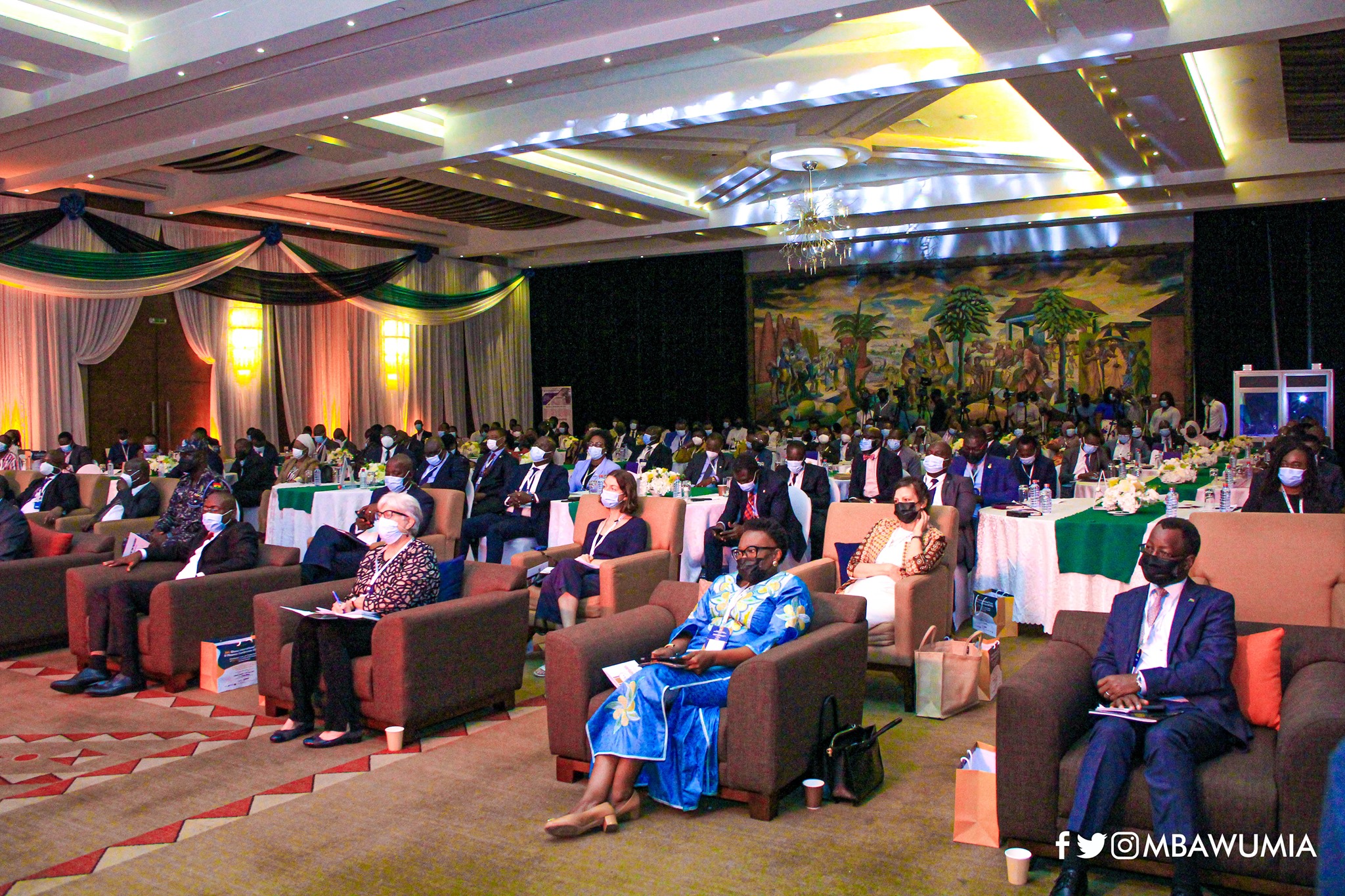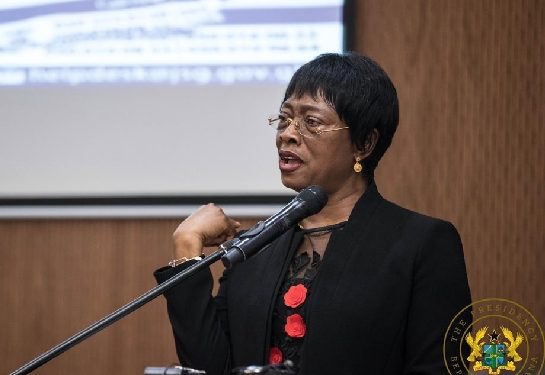The Vice President, Dr Mahamudu Bawumia, has asked financial institutions on the African continent to deepen their structures to ensure enhanced financial inclusion.
According to him, financial inclusion is crucial in enhancing inter-trade among the countries, leading to the success of the African Continental Free Trade Area (AfCFTA) agreement.
Dr Bawumia said this at the opening ceremony for the 5th Ghana International Trade and Finance Conference (GITFiC) in Accra on Tuesday, July 27, 2021.
Financial inclusion requires financial institutions to make available, equal opportunities to individuals and businesses, especially those in the informal, as well as small and medium-scale sectors to access affordable, and timely financial services.
These financial services include banking, loan, equity, and insurance, which are to be provided sustainably.
Senior officials of African central banks, the African Union (AU), the West African Monetary Institute (WAMI), members of the Diplomatic Corps, and other key stakeholders of AfCFTA attended the conference.
According to Dr Bawumia, it would be detrimental to have only a small portion of the population on the continent, traders especially, have access to financial services.
This is because such a situation would impede the progress of the trade agreement.
He said, “if only a small fraction of your population has access to financial services and most of the traders do not have, then the financial services would not be able to play any significant role.”
“And so, for African countries, it is very important that we emphasise not only… financial services but… financial inclusion; that is what will really catalyse the trade process that we are trying to do under AfCFTA,” he added.

Integration of the Pan African Payments and Settlement System (PAPSS)
The vice president also called on the African Export-Import Bank (Afreximbank) to re-examine its strategy in the implementation of a centralised payment and settlement system for intra-African trade and commerce payments.
“My humble advice is that let’s move towards the national payment systems connecting directly to the Pan African Payment and Settlements System (PAPSS) and that will bring all the financial institutions under their switches for us to move forward,” Dr Bawumia said.
PAPSS, developed by the Afreximbank, is the first centralised payment market infrastructure for processing, clearing and settling of intra-African trade and commerce payments.
It is expected to facilitate payments as well as formalise some unrecorded trade due to the prevalence of informal cross-border trade in Africa.
The vice president observed that for a more effective payment system, it was important for Afreximbank to plug in the existing payment structures being operated by various African Central Banks into a central system.
“If you look at the financial systems within each of the countries, you have switches and financial institutions are all connected to these switches, whether it’s in Ghana or Nigeria or the BCEAO.
I think the easiest and quickest way for us to go as a continent is to have the national switches connect directly to the Pan African Payments and Settlements System,” he said.
Adding that “when the national switch in Ghana, for example, under GhIPPS, connects to PAPPS, it brings along immediately all the 23 or so banks that are functional.
It would be similar in Nigeria, similar with the BCEAO. If we want to wait for each individual financial institution to connect directly, there will be a long delay in the process, but we don’t have time.”
Payments are at the heart of free trade
Touching on the theme of the conference, “Facilitating Trade in AfCFTA; the Role of the Financial Services Sector,” Dr Bawumia noted that a simple, efficient payment system was an integral part of ensuring continental trade.
“After all, payments are at the heart of the day-to-day functioning of a free trading system. Making sure that the underlying payment system runs smoothly is the least we should expect of the financial system if we are to realize the vision of the continental free trade,” he said.
With intra-African trade expected to improve from the single-digit levels to over 60%, PAPSS would allow businesses on the continent to clear and settle transactions in their local currencies without depending on third-party currencies.
It would also provide an alternative to the current high-cost and long correspondent banking relationships by facilitating trade and other economic activity across African countries.
This would be done through a simple, low-cost, and risk-controlled payment clearing and settlement system.
















